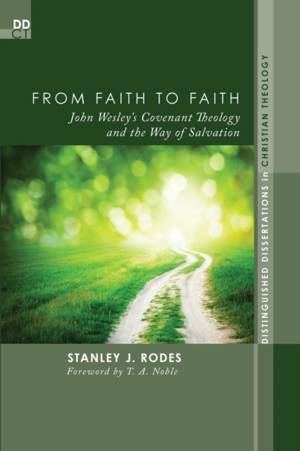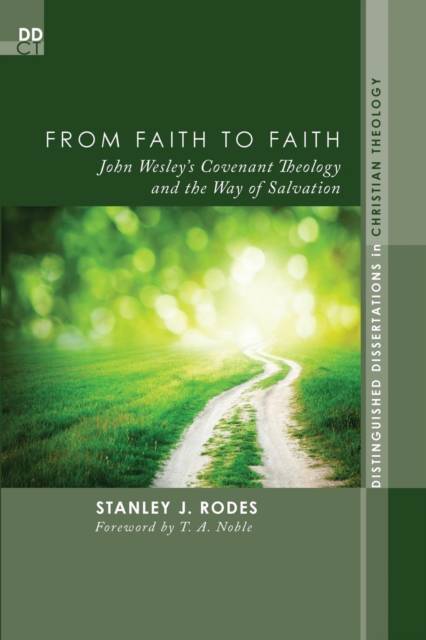
Bedankt voor het vertrouwen het afgelopen jaar! Om jou te bedanken bieden we GRATIS verzending (in België) aan op alles gedurende de hele maand januari.
- Afhalen na 1 uur in een winkel met voorraad
- In januari gratis thuislevering in België
- Ruim aanbod met 7 miljoen producten
Bedankt voor het vertrouwen het afgelopen jaar! Om jou te bedanken bieden we GRATIS verzending (in België) aan op alles gedurende de hele maand januari.
- Afhalen na 1 uur in een winkel met voorraad
- In januari gratis thuislevering in België
- Ruim aanbod met 7 miljoen producten
Zoeken
€ 48,95
+ 97 punten
Uitvoering
Omschrijving
The idea that covenant theology is profoundly influential in John Wesley's theological thought sounds dissonant. What would an evangelical Arminian have to do with a theological framework that historically belongs to a Reformed understanding of salvation? How could this possibly square with his ongoing controversy with the Calvinism of his day? On the basis of compelling evidence from his sermons and correspondence, this investigation dares to push through the impulse to dismiss the idea that covenant theology belongs to the infrastructure of Wesley's thought. The resulting discovery of its role in shaping his narrative of the way of salvation is surprising and intriguing. Wesley is not only informed and fluent with respect to covenant theology, but thoroughly committed to it. This study demonstrates that, with theological precision and discernment, Wesley appropriates covenant theology in a way that is consistent both with its primary theological features and with his Arminianism. His distinctive view of "the gradual process of the work of God in the soul" supplies valuable grist for further reflection, especially by those charged with the care of souls in the twenty-first century
Specificaties
Betrokkenen
- Auteur(s):
- Uitgeverij:
Inhoud
- Aantal bladzijden:
- 270
- Taal:
- Engels
- Reeks:
- Reeksnummer:
- nr. 8
Eigenschappen
- Productcode (EAN):
- 9781620325445
- Verschijningsdatum:
- 11/10/2013
- Uitvoering:
- Paperback
- Formaat:
- Trade paperback (VS)
- Afmetingen:
- 152 mm x 226 mm
- Gewicht:
- 249 g

Alleen bij Standaard Boekhandel
+ 97 punten op je klantenkaart van Standaard Boekhandel
Beoordelingen
We publiceren alleen reviews die voldoen aan de voorwaarden voor reviews. Bekijk onze voorwaarden voor reviews.









